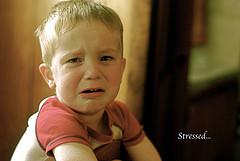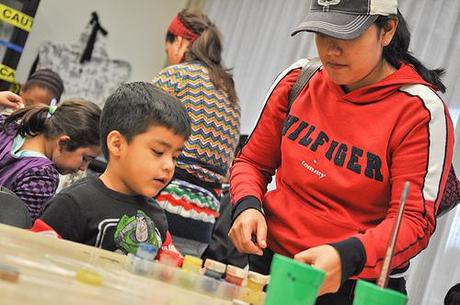
However, for children stress can be a bewildering emotion – one which invokes blind panic and fear.
Of course, children aren’t issued with a useful guidebook for combating stress when they are born; instead they have to develop their own methods of managing their stress levels.
This vital stage of their development can be greatly helped by having a caring parent to show them how to. Here are 8 ways in which grown-ups can help kids cope with stress.
-
Spot The Symptoms
Has your child’s behavior suddenly changed? Have they become quieter, more withdrawn, more irritable? Have they lost their appetite? Any sudden changes in temperament could well be a sign of stress. -
Put Yourself in Their Shoes
Try and apply some logical thinking before you talk to your child. Has anything changed in their life recently? Is there anything which could have triggered feelings of stress? This could be something like changing schools, getting used to a new teacher or learning to accept a new baby sibling. Put yourself in their shoes and try and think what is making them stressed. -
Talk To them
Find the time to have a one-to-one chat with them and ask if they are unhappy and if so what it is that is causing them stress. They might well be embarrassed about talking to you – admitting to stress can, wrongly, be seen as a sign of weakness among young and old alike. If they don’t want to spell out why they are stressed then don’t push them – just reassure them that they can talk to you anytime.
Talking to your child over coffee can be helpful.
Source: MomLogic
-
Talk To Others
If you can’t identify the cause of stress then talk to other people who have your child’s welfare at heart. Ask their teachers if they have noticed any change in your child’s temperament. They might well not have picked up on anything but can look out for warning signs and give your child extra care. -
Don’t Be Stressed Yourself
This is very important. The thought that your child might be stressed is stressful for you but if you over-react then you are likely to increase your kid’s anxiety levels. Children tend to mirror their parents’ behavior so act calmly during challenging times and you will teach them a great lesson about coping with stress. -
Teach Them To Articulate Their Fears
Encouraging children to say their fears out loud will prevent them from bottling up their emotions and directing their stress inwards. If they can say phrases such as “I am afraid of the dark” then it will give you something to work on. Tell them what you were scared of as a child, and what you are still scared of, and it might provoke an open debate. This really works! -
Diversionary Tactics
If your child is stressed it might be time to take their mind off their fears by engaging in an enjoyable activity you can share together. This could be doing a jigsaw puzzle, playing a game or creating some great arts and crafts. And bear in mind that sometimes the best time to talk about stress is when you’re not feeling too stressed.
Taking up arts and craft activities can be very helpful in coping with stress, both to you and your child.
-
Show Them You Care
Sometimes it’s best not to get too intellectual about stress – often a good, old-fashioned hug is one of the best stress-busters available; whether you’re a child or an adult!
Your thoughts?
Ultimately what is important is that your child doesn't bottle up emotions and let aggravate stress over a period of time. It is time for you to jump in. Do you agree?
About the Author
James Christie writes for Baker Ross arts and crafts company. Check out Baker Ross’s fantastic range of craft essentials for kids.



